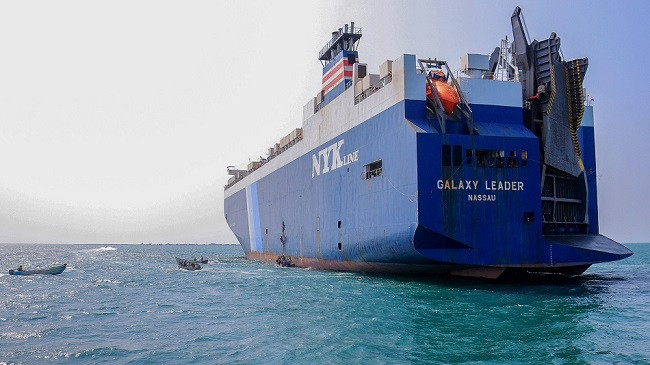Attacks by Yemen’s Houthi rebels on cargo ships in the Red Sea have increased the cost of shipping cargo through South Africa’s Cape of Good Hope. It takes two weeks longer to ship goods from Asia to Europe and the East Coast of the United States. So the shipping companies have announced to charge the extra cost for this from the customers.
This is affecting the importers and exporters of Bangladesh. Because most of the export products from Bangladesh are transported through this route. However, one-tenth of the imported goods are brought using this route.
According to the concerned, the cargo transport is taking two weeks longer as the commercial ships have to cover an additional distance of about 5,600 km. The cost of transportation is increasing by more than 40 percent. To cover this additional cost, shipping companies have ‘declared levy’ of $1000 to $1500 per TEU (20ft container).
Such additional costs will have a large impact on Bangladesh’s exports and comparatively less on imports. According to shipping officials, more than 70 percent of the total exports from Bangladesh go to ports in the European Union, the East Coast of the United States, and Canada, which mainly passes through the Red Sea and 8 to 10 percent of the country’s imports come through that route.
Exporters may not be directly affected by these additional costs. Because foreign buyers usually bear the transportation costs, but importers will suffer directly because of this. However, since buyers will pay the additional cost, they may seek discounts on subsequent orders or push for lower prices, which may ultimately affect exporters also.
The top five shipping companies in the world are MSC, Maersk, CMA CGM, COSCO and Hapag Lloyd. These five companies transport almost half of Bangladesh’s import-export goods in containers. Already, Switzerland’s Mediterranean Shipping Company or MSC has announced on its website the levy of Contingency Adjustment Charge (CAC) due to the Red Sea crisis. The CAC is $1,000 per 20-foot container and $1,500 per 40-foot container from January 1 on all shipments from India, Pakistan, Bangladesh and Sri Lanka and the Middle East to Europe, Scandinavia, the Baltic and the Mediterranean region.
Similarly, Denmark-based shipping company Maersk Line has also announced an increase in fees of $400 for every 40 feet container as ‘Transit Disruption Surcharge (TDS)’ on its website. This TDS applies to ships that are already en route and are transiting Africa. A Peak Season Surcharge (PSS) of $1,000 per 40ft container will be levied for Eastern Asia to Northern Europe from January 1.
Hapag-Lloyd has announced an increase in fees called ‘Emergency Revenue Charge’. French company CMA CGM has imposed a PSS of $500 per TEU from all Asian ports including Bangladesh to European ports from January 1.
Severel shipping official said, since export and import cargo bound for the East Coast of Europe and the United States pass through the Red Sea, this charge will apply to cargo coming and going from Bangladesh. If the ongoing critical situation continues, more additional charges may be announced.
Khairul Alam Suzan, Vice President of the Bangladesh Freight Forwarders Association (BAFA) told the media that the shipping companies have given this charge to meet the additional fuel and operational costs due to long distances for Red Sea crisis. However, he hopes that the situation will improve soon.
SOURCE: CLICK HERE

